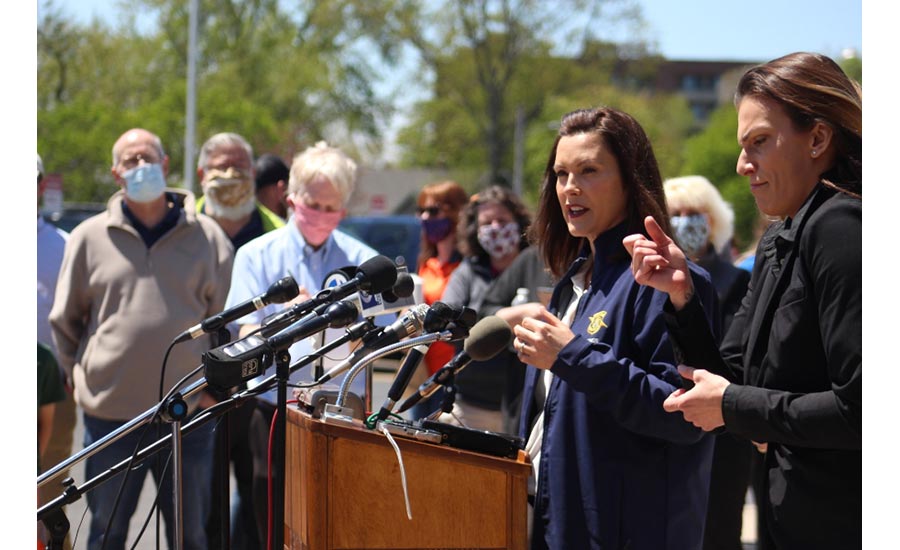Michigan Gov. Gretchen Whitmer (D) signed two executive orders Sept. 23 targeted at making Michigan’s state buildings and infrastructure carbon-neutral by 2050, a goal that contractors want to know more about.
“The science is clear—climate change is directly impacting our public health, environment, our economy and our families,” said Whitmer in a statement.
Whitmer signed two executive orders Sept. 23, one that sets an interim goal of a 28% reduction below 1990 levels in greenhouse gas emissions by 2025 and another that sets a goal of net-zero carbon usage in the construction and operation of all state facilities by 2050.
To achieve these carbon neutrality goals, the order assigns the task of developing a Michigan Healthy Climate Plan, to reduce greenhouse gas emissions and transition toward carbon neutrality, to state's Department of Environment, Great Lakes and Energy (EGLE).
The order calls for an advisory council, the Council on Climate Solutions, to be established and made up of the directors or director-designated representatives from nine state agencies and 14 state residents appointed by the governor.
Damian P. Hill, president of the 300-member strong Associated General Contractors of Michigan said he needs to know more about the initiative.
“I know that our contractors will be interested in working with the state and want to reduce their carbon footprint,” he said. “But without any specifics about how we get there, I think it is premature to say anything about it.”
"I would hope that the council would include representation from the construction industry and perhaps the building trades and would have all the affected big industries in Michigan weigh in on what the impact might be and how we get there without harming business and industry,” he added.
Lance Binoniemi, vice president of government affairs for the Michigan Infrastructure and Transportation Association, a construction trade association representing disciplines including road and bridge, sewer and water, utility, excavation and specialty construction, said he also needs to know more.
“We haven’t given it a lot of consideration at this point. We’re still getting information,” he said.
Hill said he expects his association to follow the initiative closely.
“As things develop and information becomes available we’ll make sure that we have our voice heard and contribute to the process,” he said. “In the meantime, we will keep our membership closely informed about what they need to know.”
Michigan is among a handful of states that have committed to carbon reductions, including California, New York, Hawaii and Maine.
The order is being lauded by environmental groups such as the Natural Resources Defense Council.
“We now need to take today’s bold action and go even further,” said Samantha Williams, midwest regional director of Clean Energy for the defense council in a statement released Sept. 23. “We must ensure that the commitment to cutting carbon pollution out of Michigan’s economy is accompanied by an equitable and inclusive process that charts the path forward.”
The order predicts that Michigan “will be able to take full advantage of the ongoing global energy transformation—from the jobs it will generate for our skilled workforce, to the protections it will provide for natural resources, to the savings it will bring to communities and utility customers.”
Because both of the initiatives are executive orders and not laws passed by the state legislature, both could be rescinded by a new governor if Whitmer is not reelected at the end of her term in 2022.






Post a comment to this article
Report Abusive Comment